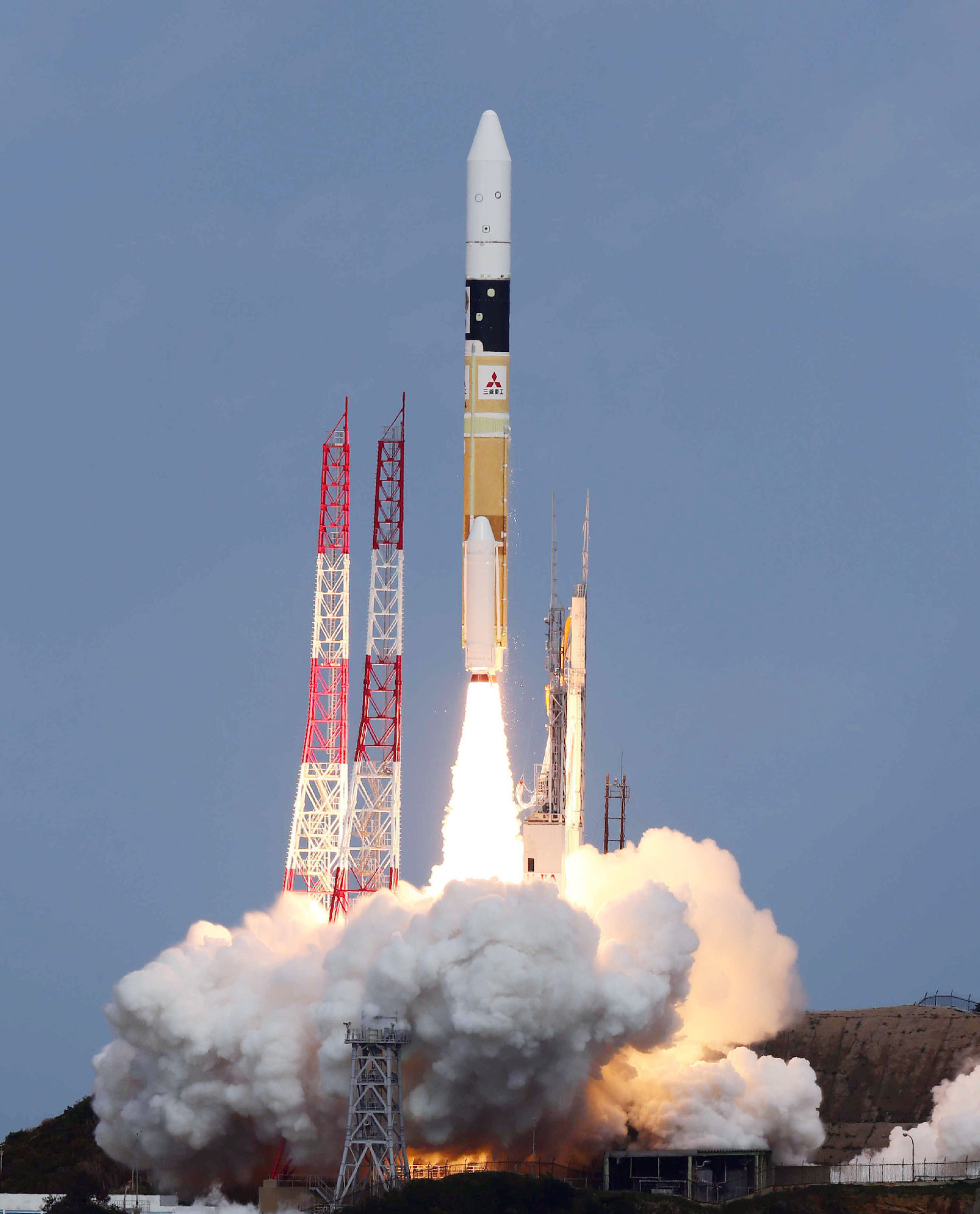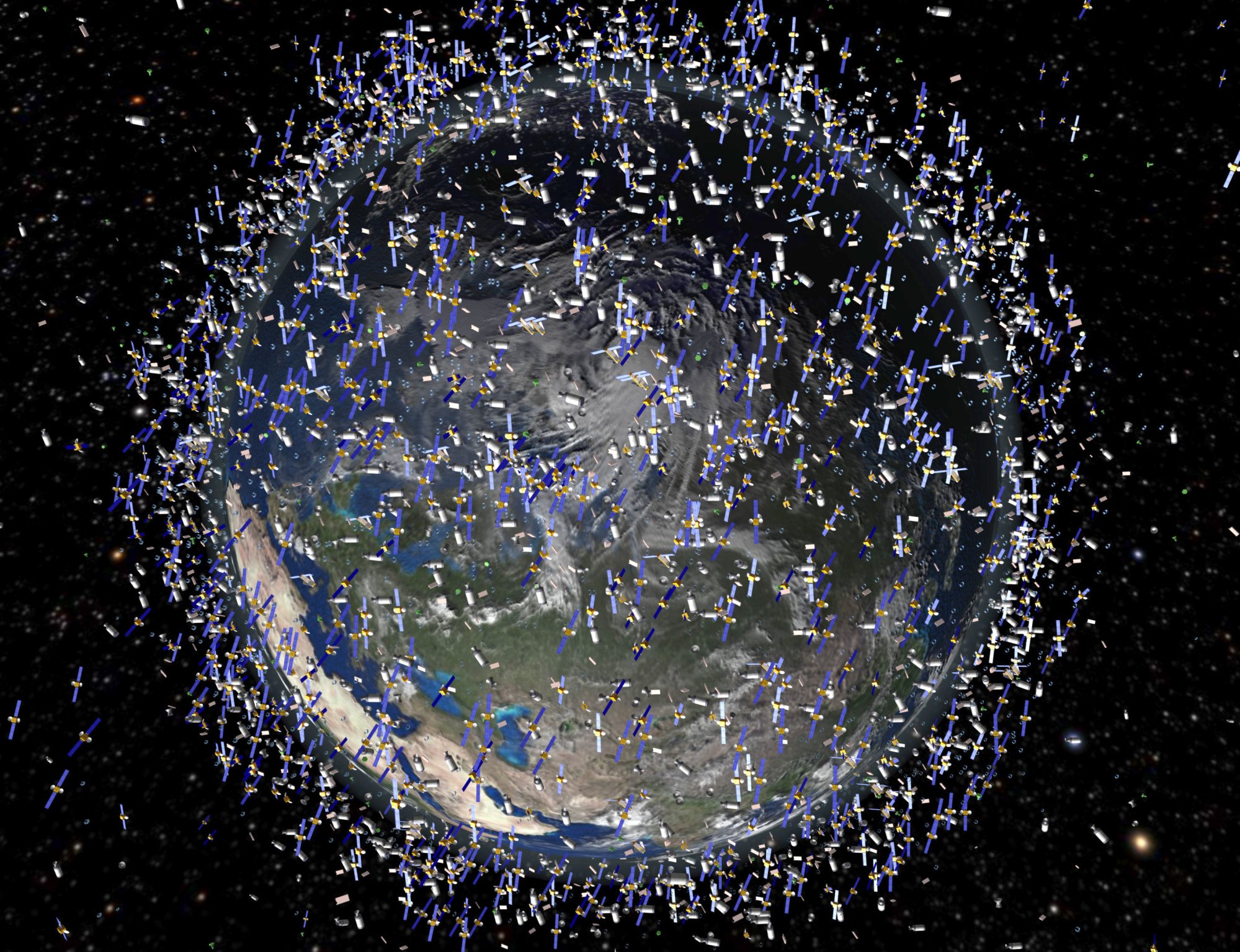How Japan can edge out China to become world leader in cleaning up space junk
South China Morning Post features an article about orbital debris becoming a growing problem that urgently needs to be dealt with despite certain Chenese progress, which is met with scepticism. Caliber.Az republishes the article.
Japan has the advanced technologies, specialised know-how and international trustworthiness that make it an obvious choice to lead clean-up efforts
Imagine a piece of debris the size of a coin. While harmless enough in your hand, such a scrap of detritus in low-Earth orbit would be moving fast enough to destroy satellites. And there are, by some estimates, nearly 170 million objects of similar size or smaller currently whizzing around our planet – many of them too small to be tracked.
The effects of an impact could range from knocking out a single, albeit expensive, satellite to a catastrophic collisional cascade that could theoretically make low-Earth orbit all but unusable for many years to come. Amid the rising concern, Japan’s Astroscale last month unveiled its plans to become the first company to successfully demonstrate the commercial use of a vehicle that can remove multiple decommissioned satellites from orbit in a single mission.
Orbital debris, then, presents not only challenges but opportunities – especially for small-to-medium space powers such as Japan – to demonstrate their superior technological know-how in niche areas and show international leadership.
Debris mitigation is of particular interest to Japan, whose approach to the issue as one of the world’s leading space actors can be characterised by multisectoral collaboration at the national level and active participation in international rule-making platforms.

The Japan Space Exploration Agency (JAXA) forms the backbone of the country’s aerospace development and utilisation endeavours, overseeing space activities and simultaneously advancing international cooperation. Space sustainability, defined as the ability to maintain the conduct of space activities indefinitely into the future, is at the core of JAXA’s work.
In its push to achieve “safety on Earth and in space”, the agency engages in research and development to observe, reduce and remove orbital debris. It also collaborates with a diverse range of non-governmental bodies such as Astroscale and satellite telecommunications company Sky Perfect JSAT Group, primarily by supporting their own research and development activities.
JAXA supports Astroscale in its development of technologies to collect the spent upper stages of large rockets, and has also thrown its weight behind a project developing a satellite equipped with laser to be used for orbital clean-up – an industry-academia collaboration involving Sky Perfect JSAT, scientific research institute Riken and Nagoya and Kyushu universities.
Japan’s commitment to space sustainability can also be observed internationally, particularly through the development of norms and standard setting.
No particular actor was made responsible for orbital clean-up in the foundational space treaties that were established during the Cold War. The space industry has since grown massively, but individual countries still follow their own standards and approaches when it comes to debris mitigation, due to the difficulties of negotiating and passing international laws on the subject. Presently, non-legally binding norms remain the core mechanisms for debris mitigation.
Tokyo has demonstrated its commitment to space sustainability by actively taking part in international forums, where it addressed the “urgent need” for a set of norms to regulate the fast-changing space environment. Last year, Japan also joined the US-led moratorium on direct-ascent anti-satellite weapon tests, believed to be one of the main contributors to ever-growing amounts of space junk.
JAXA is also leading the Asia-Pacific Regional Space Agency Forum (APRSAF), a regional framework that promotes the peaceful use of space in the Asia-Pacific and holds regular meetings with regional partners for updates on national initiatives, with themes surrounding sustainability and international partnerships.

Why is space debris so important to Japan?
As the number of actors and objects in orbit has grown, debris mitigation has become evermore important. But why is it of such particular focus for Japan?
First, Japanese foreign policy has long centred on portraying the country as a responsible and reliable international partner. As space sustainability is inextricable from setting and adhering to norms, it has strategically been used to demonstrate Japan’s responsible behaviour.
Second, debris mitigation provides Japan with a niche approach to signify its space prowess. Despite being one of the leading space nations – with its first experimental rocket programme in 1955 and considerable contribution to the International Space Station – Japan has rarely been identified together with the United States, the USSR/Russia, and more recently China as among the world’s top space powers. Consequently, investing in a smaller but highly significant and alarming space issue has allowed a middle power like Japan to showcase its advanced technologies and innovation.
While space sustainability relies upon international cooperation, orbital clean-up efforts sometimes face challenges from strategic competition. Unavoidably, this has affected Japan. Nevertheless, Tokyo remains in a competitive position as it possesses two key strengths: advanced technologies and trustworthiness as a responsible space actor.
As space assets have dual-use functions – they can be deployed for both civilian and military purposes – any efforts at debris mitigation are often closely monitored from a security perspective.
China last year successfully grabbed a long-inactive satellite and threw it into a “graveyard” orbit, around 300 km further out from where geostationary satellites orbit Earth. The move contrasted with some of Beijing’s previous space activities, such as the test of direct-ascent anti-satellite weapon in 2007, which allegedly created more than 3,000 pieces of space debris.
Some interpreted China’s orbital clean-up efforts as a demonstration of its offensive capabilities, showing the concerning level of mistrust that exists among spacefaring nations. It also hints at the international scepticism created by China’s ostensibly inconsistent behaviour in space throughout the years, making it difficult for the country to portray itself as a sustainable off-planet player.
So we see that when it comes to solving the orbital debris issue, the question of “who” looms large.
Japan’s space-sustainability efforts have largely been welcomed. It should leverage this position to become a world leader in space-debris mitigation. Tokyo should also consider taking a leading role in confidence-building initiatives, such as by extending bilateral cooperation beyond its usual partners, promoting private partnerships, and bringing its multilateral networks, like APRSAF, to interact with other regional space platforms.
Beyond Japan, the issue of orbital clean-up might also serve to show small and middle powers that they can play an outsize role in critical issues relating to international relations, including the governance of outer space.








